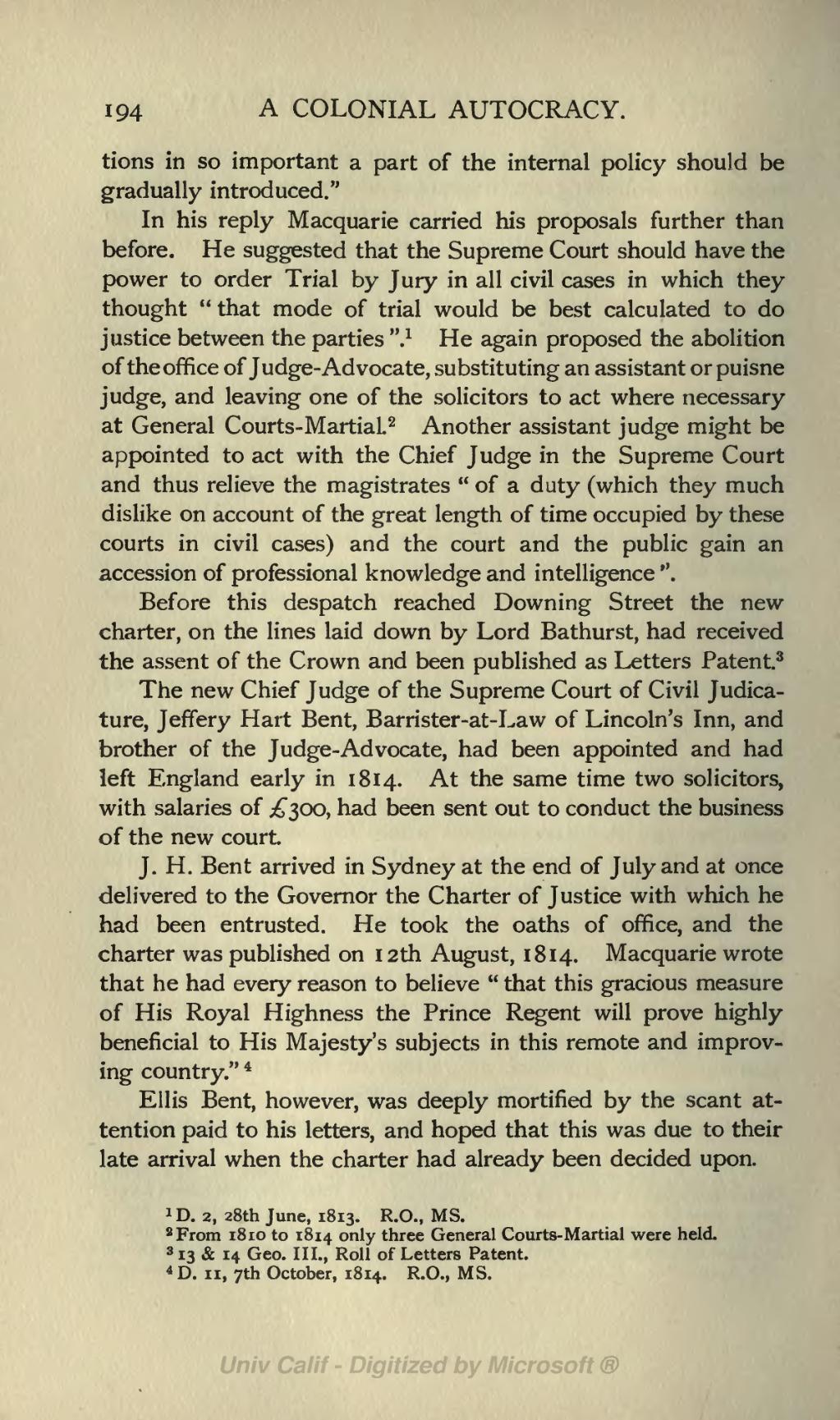tions in so important a part of the internal policy should be gradually introduced."
In his reply Macquarie carried his proposals further than before. He suggested that the Supreme Court should have the power to order Trial by Jury in all civil cases in which they thought "that mode of trial would be best calculated to do justice between the parties".[1] He again proposed the abolition of the office of Judge-Advocate, substituting an assistant or puisne judge, and leaving one of the solicitors to act where necessary at General Courts-Martial.[2] Another assistant judge might be appointed to act with the Chief Judge in the Supreme Court and thus relieve the magistrates "of a duty (which they much dislike on account of the great length of time occupied by these courts in civil cases) and the court and the public gain an accession of professional knowledge and intelligence".
Before this despatch reached Downing Street the new charter, on the lines laid down by Lord Bathurst, had received the assent of the Crown and been published as Letters Patent.[3]
The new Chief Judge of the Supreme Court of Civil Judicature, Jeffery Hart Bent, Barrister-at-Law of Lincoln's Inn, and brother of the Judge-Advocate, had been appointed and had left England early in 1814. At the same time two solicitors, with salaries of £300, had been sent out to conduct the business of the new court.
J. H. Bent arrived in Sydney at the end of July and at once delivered to the Governor the Charter of Justice with which he had been entrusted. He took the oaths of office, and the charter was published on 12th August, 1814. Macquarie wrote that he had every reason to believe "that this gracious measure of His Royal Highness the Prince Regent will prove highly beneficial to His Majesty's subjects in this remote and improving country."[4]
Ellis Bent, however, was deeply mortified by the scant attention paid to his letters, and hoped that this was due to their late arrival when the charter had already been decided upon.
